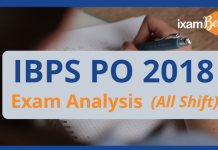The RBI Grade B examination is a pivotal milestone for aspiring candidates in 2024, emerging as a highly anticipated and competitive government exam in India. Recognizing the evolving dynamics of this apex banking institution, it becomes imperative for candidates to adapt their preparation strategies accordingly. The examination authorities have been known to adjust the difficulty levels of questions over time, adding an extra layer of complexity to the challenge.
To secure success in the RBI Grade B examination, candidates must meticulously plan and execute their preparation, steering clear of common pitfalls. Drawing from comprehensive observations, we have identified ten crucial mistakes that aspirants should diligently avoid. These encompass aspects ranging from inadequate planning and lack of a structured study schedule to underestimating the significance of current affairs and economic developments. Neglecting the nuances of quantitative aptitude and reasoning sections can prove detrimental. Success in the RBI Grade B exam demands hard work and a strategic approach, encompassing a thorough understanding of the syllabus, regular practice, and staying abreast of current events. As candidates embark on this challenging journey, avoiding a few mistakes becomes pivotal for a well-rounded and effective preparation strategy.
This blog serves as a valuable guide for RBI Grade B aspirants by shedding light on common mistakes that can hinder their preparation journey. It meticulously outlines the pitfalls to steer clear of, providing candidates with a roadmap to navigate the challenging landscape of the exam. By offering insights into strategic planning, subject prioritization, and the dynamic nature of the examination, the blog empowers candidates with a comprehensive understanding, equipping them to approach the RBI Grade B preparation 2024 with confidence and foresight.

RBI Grade B 2024: Eligibility Criteria
Cracking the RBI Grade B 2024 exam necessitates understanding the eligibility criteria outlined in the RBI Grade B notification. While the specific eligibility criteria for 2024 are yet to be unveiled, a prudent strategy involves thoroughly examining the criteria laid out in the RBI Grade B notification 2023. This careful scrutiny enables candidates to assess their eligibility based on the outlined requirements, providing a crucial foundation for successful exam application.
The primary qualification requisite for RBI Grade B is a Graduate Degree, forming the cornerstone of eligibility. Furthermore, candidates must adhere to the RBI Grade B age limit, which typically spans from 21 to 30 years. Additionally, the notification often incorporates specific RBI Grade B age relaxations for reserved categories, affording them relaxation in the upper age limit.
To strategize effectively for the upcoming RBI Grade B 2024 examination, it is imperative to remain vigilant and informed about any modifications in the RBI Grade B eligibility criteria. By referencing the RBI Grade B eligibility criteria 2023, candidates can tailor their preparation to align seamlessly with the forthcoming requirements, ensuring a robust foundation for a successful application and examination process.
| Educational Criteria | Graduation in any discipline /Equivalent technical or professional qualification with minimum 60% marks (50% for SC/ST/PwBD applicants) |
| Age Criteria | Minimum-21 Years / Maximum-30 Years |
| Age Relaxation | Minimum-3 Years / Maximum-13 Years |
RBI Grade B 2024: Exam Pattern and Syllabus
With the culmination of the RBI Grade B 2023 recruitment, aspirants are now focusing on the upcoming RBI Grade B 2024 exam. While the official notification for 2024 is pending, candidates can glean insights from the previous notification regarding the RBI Grade B exam pattern and syllabus. Notably, the 2023 notification changed the Phase 2 syllabus, emphasizing the need to comprehend the anticipated pattern and syllabus for 2024. This proactive approach streamlines preparation and keeps candidates informed about potential modifications.
| Phases | Exam Type | Marks | Duration | Exam Language |
| Phase 1 (Prelims) | Objective | 200 marks | 2 hours | Bilingual (Except the test for English language.) |
| Phase 2 (Mains) | Paper 1 (Objective & Descriptive) | 100 marks | 30 minutes (Objective) & 1 hour 30 minutes (Descriptive) | |
| Paper 2 (Writing Skills) | 100 marks | 1 hour 30 minutes | ||
| Paper 3 (Objective & Descriptive) | 100 marks | Composite time of 2 hours | ||
| Phase 3 (Interview) | Interview | 75 marks | ||
We aim to empower aspirants with a comprehensive understanding of the RBI Grade B exam by delving into the RBI Grade B exam pattern based on the prior year’s notification. Covering crucial aspects such as time allocation, section-wise question distribution, and the presence of negative marking, this knowledge serves as a foundational pillar for adequate preparation. Anticipation for the 2024 exam centers around a structured Prelims phase encompassing English Language, Reasoning Ability, Quantitative Aptitude, and General Awareness, each with a designated time limit. The subsequent Mains Exam, contingent on successful Prelims clearance, incorporates papers on Economics and Social Issues, Descriptive English, and Finance Management, featuring a blend of objective and descriptive assessments. This elaborate evaluation, conducted in multiple shifts over 330 minutes, underscores the depth and breadth of candidates’ knowledge, crucial for securing the esteemed RBI Grade B position.
The RBI Grade B Exam syllabus is pivotal for adequate preparation. For the Prelims phase, anticipate General Awareness, English Language, Reasoning, and Numerical Ability tests. General awareness, crucial for scoring well, can be efficiently covered through BeePedia. Moving to the main phase, Paper 1 focuses on economic and social issues, with some modifications from the 2023 syllabus. Paper 2 assesses English Language skills through descriptive writing—Paper 3 delves into Finance and Management, incorporating contemporary topics like NaBFID and digital payments.
| RBI Grade B Prelims Syllabus | |
| Subject | Topics |
| Quantitative Aptitude | Simplification and approximation, Number Series, Quadratic Equation, Number System / HCF & LCM, Ratio and Proportion, Average, Partnership, Ages, Percentage, Profit & Loss, Time, Speed & Distance, Problems on Trains, Boat and Stream, Time & Work / Pipes and Cisterns, Simple and Compound Interest, Mixture & Allegations, Permutation and Combination, Probability, Data Interpretation (DI), Caselet DI and Data Sufficiency |
| English | Grammar, Vocabulary, Reading Comprehension, Passage Making, Error Spotting, Jumble Words, Sentence Framing, Fill in the blanks |
| General Awareness | Monetary Policies, Banking and Financial Awareness, Economic Terms, Current Affairs (BeePedia), Static GK, Financial and Economic News, Government Schemes. Agreement & Deals, Banking Terms- rates & processes, National Institutions |
| Reasoning | Puzzles, Seating Arrangement- Circular, Square & Linear, Data Sufficiency, Directions and Distance, Coding-Decoding, Blood relations, Inequality, Syllogism, Machine input and output, Verbal Reasoning, Ordering and Ranking, Arrangement and Pattern, Scheduling, Distance and Direction, Ranking |
| RBI Grade B Economic and Social Issues (ESI) Syllabus | |
| Topics | Sub-Topics |
| Growth and Development | Measurement of growth: National Income and per capita income – Poverty Alleviation and Employment Generation in India – Sustainable Development and Environmental issues. |
| Indian Economy | Economic History of India – Changes in Industrial and Labour Policy, Monetary and Fiscal Policy since reforms of 1991 – Priorities and recommendations of Economic Survey and Union Budget – Indian Money and Financial Markets: Linkages with the economy – Role of Indian banks and Reserve Bank in the development process – Public Finance – Political Economy – Industrial Developments in India- Indian Agriculture – Services sector in India. |
| Globalization | Opening up of the Indian Economy – Balance of Payments, Export-Import Policy – International Economic Institutions – IMF and World Bank – WTO – Regional Economic Cooperation; International Economic Issues. |
| Social Structure in India | Multiculturalism – Demographic Trends – Urbanisation and Migration – Gender Issues – Social Justice. |
RBI Grade B 2024: Mistakes to Avoid
Aspirants eyeing success in the RBI Grade B 2024 examination must navigate the challenges strategically. To assist in this endeavor, understanding common pitfalls is crucial. This guide highlights key mistakes to avoid during preparation, shedding light on effective strategies. Steering clear of these errors ensures a more streamlined and focused approach, enhancing the prospects of securing success in one of India’s highly competitive government exams, the RBI Grade B 2024 exam.
- Choosing Theory Over Practice for Economics, Finance, and Management: Choosing dense theory books without strategic practice can hinder your RBI Grade B preparation. Although understanding theoretical concepts is vital, it’s equally important to prioritize selective readings and practical application. The extensive syllabus demands a focused approach to maximize efficiency. By combining theoretical knowledge with targeted practical exercises, aspirants can navigate the complexities of Economics, Finance, and Management, ensuring a more comprehensive and effective preparation for the competitive RBI Grade B examination.
- Neglecting Previous Year Papers and Exam Pattern: Overlooking the analysis of the RBI Grade B previous year papers and the exam pattern can significantly compromise your readiness for the RBI Grade B exam. Recognizing question trends and patterns is pivotal for devising a focused RBI Grade B exam 2024 study plan. By delving into previous examinations, aspirants gain valuable insights into the exam structure, allowing them to tailor their preparations effectively. A thorough understanding of question patterns aids in formulating a targeted and strategic study plan, enhancing the likelihood of success in the RBI Grade B examination.
- Underestimating the Importance of General Awareness: Continuous emphasis on general awareness is pivotal, as neglecting its significance can detrimentally impact overall performance in the RBI Grade B exam. Maintaining regular updates on economic and financial news is imperative, particularly for success in papers such as Economics, Social Issues, and Finance Management. A robust understanding of financial issues like the Union Budget and the Economic Survey enhances performance in these sections and contributes to a well-rounded and informed approach, ensuring a competitive edge in the RBI Grade B examination.
- Reading Irrelevant Topics Without Mentor Guidance: Embarking on studies without clear mentorship risks disorganized efforts and wasted time. Seeking guidance is pivotal to cultivating focused preparation, efficient doubt resolution, and a well-structured study plan. A mentor provides invaluable insights, helps streamline efforts, and offers personalized strategies that align with the intricacies of the RBI Grade B exam. The guidance not only enhances understanding but also optimizes study routines, fostering a more effective and directed approach toward achieving success in the competitive examination.
- Mismanagement of Time: Inefficient time management poses a significant threat to success, particularly in the crucial Phase 1 of the RBI Grade B exam. Achieving optimal performance requires a careful balance of time across sections, emphasizing Phase 1. Strategic time allocation ensures thorough coverage of essential topics, enhancing overall preparedness. Recognizing the importance of time management is pivotal for navigating the competitive exam successfully, underscoring the need for a well-structured and disciplined approach to the RBI Grade B examination.
- Giving Undue Attention to Long-Tail Questions: Inefficient time management significantly threatens success, particularly in the crucial Phase 1 of the RBI Grade B exam. Achieving optimal performance requires a careful balance of time across sections, with a particular emphasis on Phase 1. Strategic allocation of time ensures thorough coverage of essential topics, enhancing overall preparedness. Recognizing the importance of time management is pivotal for navigating the competitive exam successfully, underscoring the need for a well-structured and disciplined approach to the RBI Grade B examination.
- Ignoring the Importance of Descriptive Preparation in Phase 2: A common pitfall lies in overlooking the importance of practicing descriptive answers for Phase 2 of the RBI Grade B exam. A comprehensive performance requires conceptual understanding and strategic preparation for descriptive questions. Candidates must focus on honing their writing skills, structuring responses effectively, and conveying ideas coherently. Recognizing the significance of descriptive preparation ensures a well-rounded approach, addressing all examination components and significantly enhancing the chances of success in the RBI Grade B Phase 2 assessment.
- Studying Irrelevant Topics Without Analyzing Syllabus: Studying without a precise syllabus analysis can result in confusion and wasted effort on irrelevant topics. A thorough understanding of the syllabus is crucial for a focused approach, preventing unnecessary time expenditure on non-essential subjects. By meticulously reviewing the syllabus, candidates can streamline their preparation, directing their efforts toward the specific areas outlined for the RBI Grade B exam. This clarity optimizes study routines and ensures that each moment is dedicated to mastering the topics deemed essential for success in the competitive examination.
- Undermining the Importance of General Awareness in Phase 1: Disregarding the significance of General Awareness in Phase 1 of the RBI Grade B exam can yield far-reaching consequences. Staying abreast of current affairs and economic developments is pivotal for success, especially considering the potential shift in question difficulty levels. A comprehensive awareness of ongoing events not only enhances performance in this specific section but also equips candidates with the knowledge needed to tackle varying question complexities. Recognizing the importance of General Awareness is key to securing a competitive edge in the RBI Grade B examination.
- Studying Voluminous Course Materials Without Prioritization: Overreliance on extensive study materials without proper prioritization can lead to inefficiency in RBI Grade B exam preparation. A prudent approach involves identifying key topics, leveraging relevant study material, and focusing on high-priority concepts. By streamlining study efforts and concentrating on essential areas, candidates can optimize their preparation and ensure a more effective grasp of the crucial concepts. This strategic prioritization saves time and enhances the quality of learning, fostering a targeted and efficient approach toward success in the RBI Grade B examination.
- Beginning Exam Preparation After Notification Release: Waiting to commence preparation until after the notification release for RBI Grade B may limit study time. Early preparation is crucial to maximize the chances of qualifying, particularly considering the comprehensive syllabus of the RBI Grade B exam. Early candidates gain an advantageous head start, allowing for more thorough coverage of topics, repeated revisions, and targeted practice. This strategic approach enhances understanding and builds confidence, contributing to a more robust and well-prepared performance in the competitive examination.
RBI Grade B 2024: Basic Preparation Guidelines
Embarking on the RBI Grade B 2024 preparation journey necessitates a comprehensive strategy. From mastering mock tests to leveraging online courses, strategically using previous year papers, effective time management, and comprehensive revision strategies — each guideline contributes to a well-rounded and successful preparation approach. Explore these pillars to optimize your readiness for the competitive RBI Grade B examination.
- Mock Test Mastery: Elevate your preparation by mastering mock tests. Simulating real exam conditions, they hone your time management and decision-making skills. Regular practice builds confidence, providing a crucial edge in the RBI Grade B examination. You can also take up ixambee’s RBI Grade B free mock tests to better understand the exam.
- Online Courses for In-Depth Learning: Unlock a wealth of knowledge through online courses. Delve into virtual classrooms led by experts, gaining in-depth insights into complex topics. Interactive learning materials and guided sessions ensure a comprehensive understanding, fostering success in the RBI Grade B exam. ixambee’s comprehensive RBI Grade B Online Course will benefit candidates preparing for the exam.
- Strategic Utilization of Previous Year Papers: Craft a winning strategy by strategically using RBI Grade B previous year papers. Analyze question patterns, identify trends, and grasp the exam’s nuances. This blueprint for success enhances your readiness and optimizes your approach to the RBI Grade B examination.
- Effective Time Management: Navigate the vast syllabus with effective time management. Develop a well-structured study plan that allocates time wisely across sections. Efficient time utilization is pivotal for success in both Phase 1 and Phase 2 of the RBI Grade B exam.
- Comprehensive Revision Strategies: Solidify your knowledge through comprehensive revision strategies. Design a systematic revision plan, focusing on reinforcing key concepts. Regular and thorough reviews ensure a strong grasp of essential topics, preparing you comprehensively for success in the RBI Grade B examination.
Summing Up
Navigating the RBI Grade B 2024 exam demands strategic precision and a commitment to avoiding common pitfalls. This comprehensive guide illuminates crucial mistakes to sidestep, providing aspirants with a roadmap to success. By embracing effective preparation guidelines, from mastering mock tests to leveraging online courses and strategic use of previous year papers, candidates can enhance their readiness for this competitive examination. This holistic approach equips them to confidently tackle the challenges and secure success in the RBI Grade B 2024 exam.
To help you prepare 50% faster for competitive exams, ixamBee provides a free Mock Test Series and all the Current Affairs in English and Current Affairs in Hindi in the BeePedia capsules for GA Preparation. You can also get the latest updates for Bank PO, Bank Clerk, SSC, RBI Grade B, NABARD, and Other Government Jobs.
Also Read
Importance of Mock Tests and Quizzes for Exam Preparation
RBI Grade A राजभाषा अधिकारी: Reasoning Syllabus & Preparation Strategy
Financial Awareness for RBI, SEBI, NPS Trust and Other Bank Exams
получить займ на кивизайм 20000 на картуmoneyman займ






![Government Schemes on Women and Child Development in India 2021 [Updated] Government schemes in India:](https://www.ixambee.com/blog/wp-content/uploads/2021/06/Blog-images-2-100x70.png)






Sir, actual I prepare office attadandent exam .so ple i want previous model exam questions